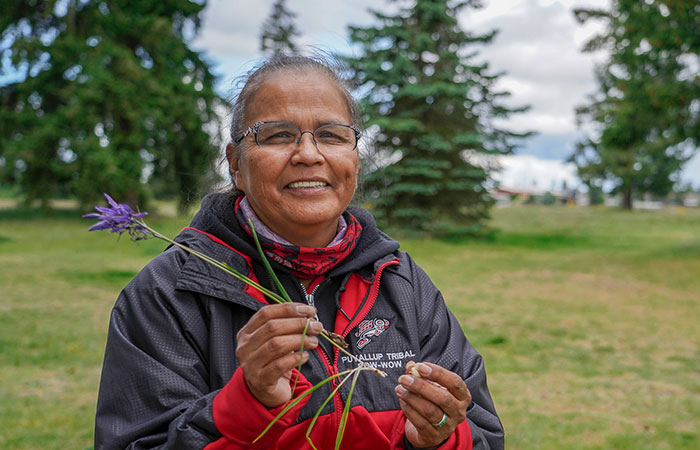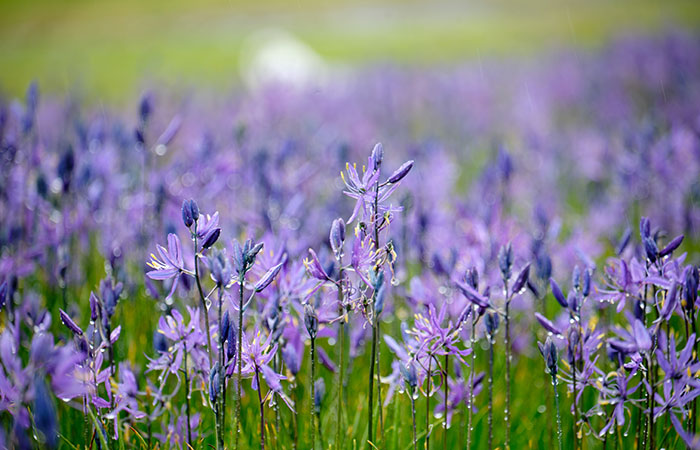Parkland’s University: PLU and Parkland share history, common bonds and a vibrant future
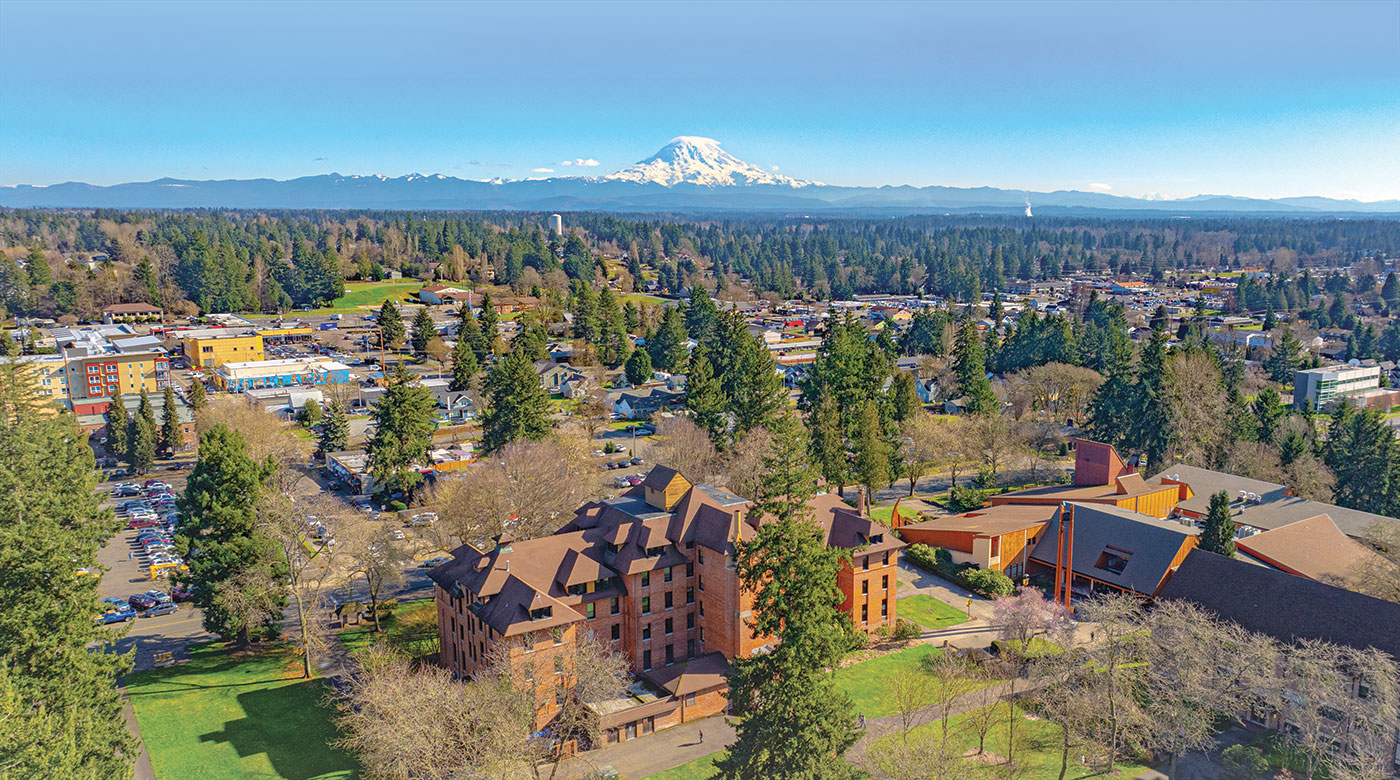
By Zach Powers '10, MFA '24
Resolute Editor
PLU President Allan Belton is a morning person. He’s frequently among the first employees to arrive at the Hauge Administration Building, but not before his morning cup of joe. His favorite coffee stand is on South Tacoma Way, the seven-mile arterial that is the economic vertebrae of the City of Destiny.
No matter how early Belton drives to work, South Tacoma Way is brightly lit by street lights, bus stops, and electronic business signs. Once he visits his coffee shop, he turns on 112th Street South and heads toward campus. A strange thing happens when he crosses the Tacoma city boundary and enters unincorporated Parkland: the lights go out.
“I started noticing middle and high school kids walking to school in total darkness,” Belton says. “There are no street lights, no sidewalks, and very few traffic lights or stop signs. Drivers can barely see, so kids are forced to dodge traffic just to get to school. It’s dangerous, and it’s unacceptable.”
Complex Challenges
Before he began working at PLU in 2015, Belton hadn’t thought much about what it meant for a community to be “unincorporated,” the policy term for a town or neighborhood that does not have a municipal-level government. That means the 40,000 people who live in Parkland — many of them either immigrant families or service members stationed nearby at Joint Base Lewis-McChord — don’t have a city council or city liaisons to contact for support.
Studies of the economy, health and wellness of unincorporated communities have shown clear results. The World Health Organization (WHO) concluded that “lack of municipal status is a structural determinant of health responsible for social conditions which generate cumulative health risks for residents.”
As an unincorporated community, Parkland receives basic services from Pierce County government — a collection of large agencies serving almost a million people. Navigating the complicated network of county bureaucracy can be a challenge for both Parkland residents and institutions.
“We find that as a community, and certainly as a school district, we have to compete sometimes for access to resources that are provided in incorporated areas,” says Lance Goodpaster, superintendent of Parkland’s Franklin Pierce School District.
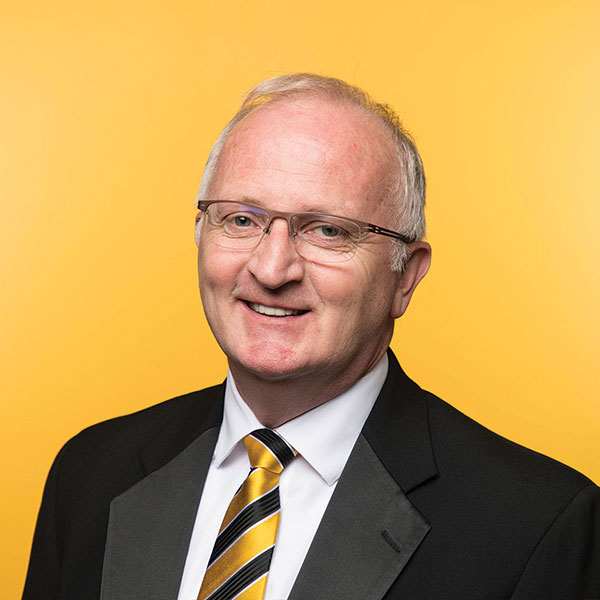
As a densely populated unincorporated community, Parkland faces a complicated and interconnected set of economic, health, and wellness challenges. Economically, Parkland residents experience income inequality that can limit access to quality housing, education, and family services. The lack of investment in infrastructure and economic development hinders business growth which, in turn, reduces economic resilience.
Many Parkland residents experience health disparities that are frequently linked to socioeconomic inequity. Access to mental health services is limited, with few providers and resources available for those dealing with mental health issues. In a 2021 assessment, The Blue Zones Project — an initiative to improve health and quality of life in Parkland and nearby Spanaway — found that both communities have some of the most disparate health outcomes in Pierce County, including more rampant heart disease than anywhere else in the county.
Shared Roots
PLU’s connection with Parkland is about more than just geography; the two communities share an origin story. When PLU was established in a forest south of Tacoma 140 years ago, school employees and their families built many of the first houses and businesses in Parkland.
As the decades passed, Pierce County’s population boomed, Tacoma’s urban footprint grew beyond the city’s borders, and Parkland transformed from a secluded, predominantly European-American neighborhood to a dense and richly diverse suburban community.
PLU students have always been active in the Parkland community. Decades-old service partnerships, like the PLU Big Buddies program at nearby James Sales Elementary and PLU Athletics’ partnership with Special Olympics Washington, continue to thrive.
New programs have been established more recently, like the Parkland Literacy Center. Founded in 2018 by professors Scott Rogers and Bridget Yaden, the PLC’s mission is to serve the greater Parkland community through literacy training and academic support. PLU students provide tutoring to K-12 students from the Franklin Pierce and Bethel school districts. In addition to academic tutoring, the center also offers language tutoring for English and Spanish language learners.
New collaborative programs emerged after the pandemic, like a recurring community meal established by PLU and Trinity Lutheran Church. Sponsored by ELCA’s Congregations Lead Initiative, the monthly meals are held at Trinity, across the street from PLU. About 100 people attend each month. More than two dozen volunteers produce the event, most of whom are PLU students.
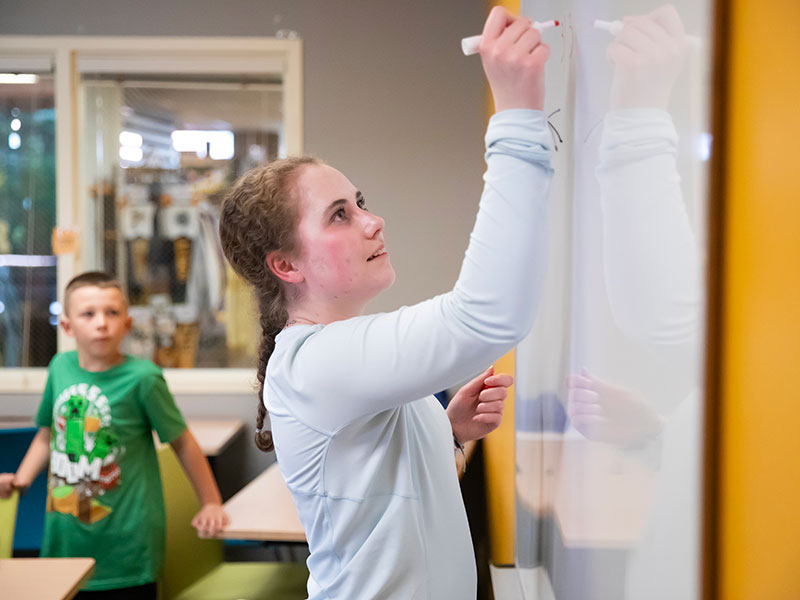
“It truly is a place where folks from Trinity, PLU, all over the Parkland community come together,” says Trinity Pastor and former PLU Regent Jonette Blakney. “It’s quickly become a wonderful tradition that brings a lot of people together who might not otherwise connect with each other.”
Blakney’s perspective on PLU and Parkland spans decades. She grew up in Parkland, and her mother worked at PLU for more than 30 years. Throughout the last half century, she’s seen the university and local community come together and drift apart many times over.
“It’s all about building trust,” she says. “When you’re going to try to build trust with a community, you have to show up. When you make mistakes, you say, ‘Oops, let’s try again.’ And then you keep showing up, and keep listening to each other.”
Committed to Collaboration
Today, many Parkland residents lack access to resources critical to their health and well-being, like health care, affordable housing, fresh food, and quality-of-life amenities like parks and libraries. PLU has long partnered with local school districts and other organizations to generate opportunities for service and collaboration, but some in the Parkland community look to the university to do more.
Others point out that PLU is the only private university in Washington in an unincorporated community. Most private universities in Washington state are in middle-income or affluent neighborhoods. Many of them, like Seattle Pacific and the University of Puget Sound, are in neighborhoods historically insulated from diversity. PLU is an exception.
“PLU wouldn’t be PLU if it were anywhere else,” Belton says emphatically. “We’re proud to be in Parkland and we know that our university can do more to positively impact our community in innovative ways that also foster learning opportunities for our students.”
In the past decade, PLU has doubled down on its commitment to Parkland, rethinking the university’s role and taking a more proactive approach to developing community resources.
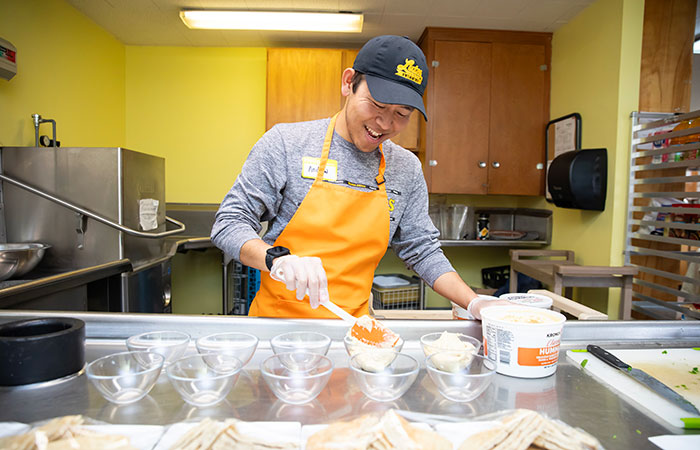
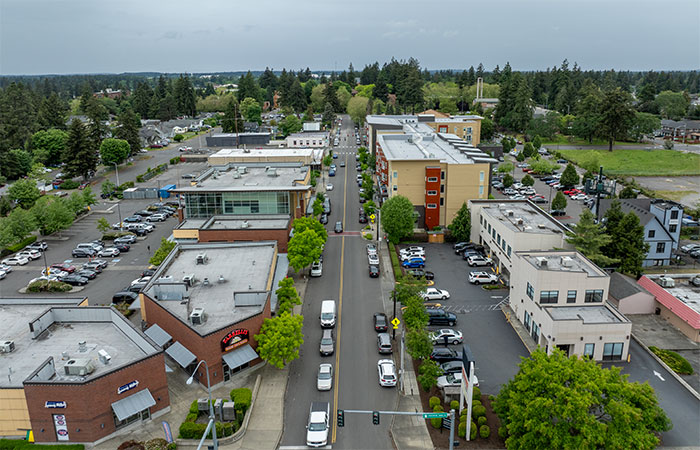
“We’ve gone from an institution that is open to partnership opportunities, to an institution that is actively generating ideas, facilitating conversations, and leading the execution of major initiatives,” Belton says.
This approach has led to a number of new programs and initiatives, including a large-scale partnership with MultiCare Health System and Washington State University’s Elson S. Floyd College of Medicine that will dramatically improve the health care services available in Parkland.
Positive Momentum
Longtime Parkland residents remember long spells of time when it felt as though there weren’t any positive community initiatives moving forward. Reverend Blakney, for one, is confident those times are in the rearview mirror.
“There have been stretches where we haven’t felt positive momentum, but now I actually feel optimistic and hopeful,” she says. “Things like PLU’s new partnership with MultiCare, our community dinners, and the arrival of Blue Zones are giving me some real hope.”
Belton still gets frustrated when he sees kids walking in the dark streets during his morning commute to work, but he now understands that no individual institution can single-handedly light the way.
“PLU doesn’t have the power to go it on our own, but we do play an important role in Parkland,” Belton says. “Sometimes we’ll lead and sometimes we’ll join and follow, but we’re absolutely going to be at the table when it comes to improving the well-being of our Parkland community.”
Collaborating for (Health) Care
In February 2024, PLU, MultiCare Health System and Washington State University’s Elson S. Floyd College of Medicine announced the Partnership for Health Innovation. The new initiative unites the three organizations around two common goals: preparing students to become local health care leaders and improving health outcomes in Pierce County, particularly for traditionally underserved and vulnerable populations in Parkland and the surrounding unincorporated area.
“Together, we will develop innovative programs and resources that will positively impact the health and well-being of this community,” PLU President Allan Belton told a packed house of health care providers, educators, and community leaders at the partnership launch event. “That impact will be achieved through providing quality health services and through the education and training of future health care leaders.”
MultiCare CEO Bill Robertson joined Belton on stage to announce the forthcoming construction of the MultiCare Medical Center at Pacific Lutheran University. Funded by MultiCare and located on part of the grounds that were formerly the PLU golf course, the new center will provide high-quality, accessible outpatient services to the almost 200,000 people in and around Central Pierce County. PLU students will benefit from the expansion of internships, clinical placements, and other experiential learning opportunities — right on campus.
Officials from the WSU College of Medicine announced plans to place medical students throughout Central Pierce County who will provide care to the community, have opportunities to live on the PLU campus and have access to PLU and MultiCare instructional and clinical facilities, including the recently renovated Rieke Science Center.
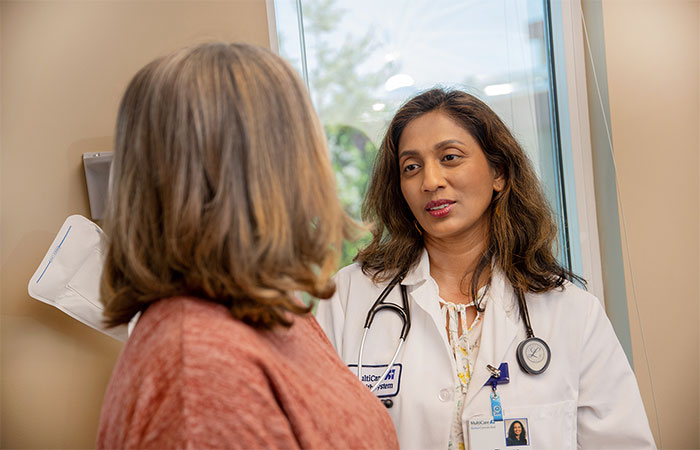
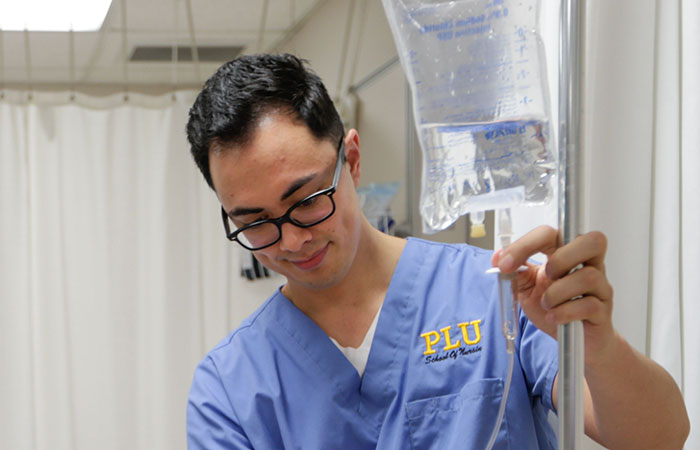
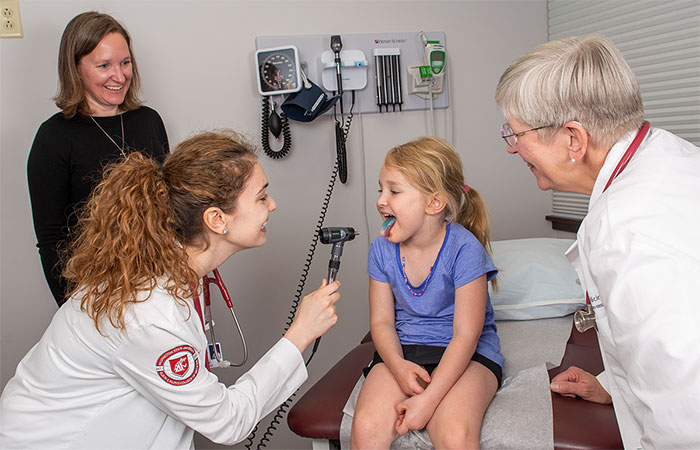
“We are deeply committed to expanding medical education and health care access in communities across Washington,” said Dr. Jim Record, dean of the WSU College of Medicine. “Launching this new initiative with PLU and MultiCare will allow us to change the health care ecosystem and take an important step toward helping Pierce County residents access the equitable health care they need.”
“(The partnership) responds to real needs,” said Claudia Miller, family and community partnerships director for Franklin Pierce Schools, who also spoke at the launch event. “The health outcomes in this part of Pierce County are staggering, especially for our youth. There are a lot of factors that play into these inequities, but access to care plays a huge part in it.”
Conserve and Sustain
PLU is working with state and county officials to establish a land conservancy on a portion of the former golf course grounds. A conservancy would generate revenue from an easement, while also generating new experiential learning opportunities for students through a conservancy-management partnership with an environmental nonprofit. A conservancy would also preserve naturally growing c’abid (camas) fields that are significant to PLU’s tribal neighbors. In recent years, PLU has been honored to host members of the Puyallup and Nisqually tribes on campus in the spring to harvest c’abid and educate students and faculty members on the plant’s cultural significance.
